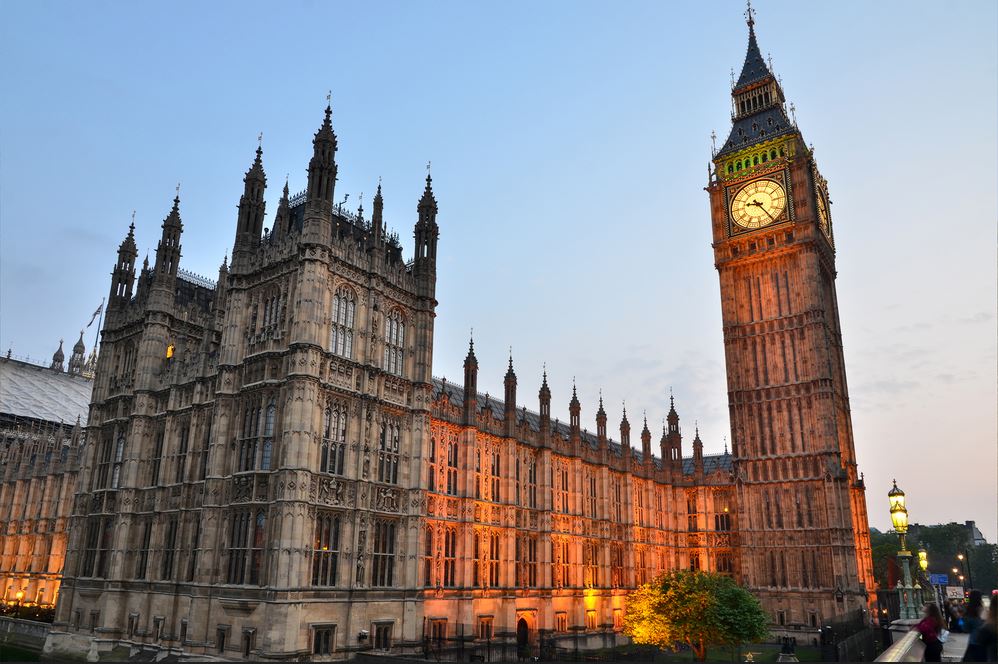King’s Speech 2023: what workplace and FM needs to know
News
- Facilities,
- Workplace
16 November 2023

Recently, the King's Speech marked the start of the parliamentary year, where a new session began, and work commenced. The government took the opportunity to lay out its legislative priorities, the last such occasion until the next general election. 2023 represents the first King’s Speech in over 70 years, helmed by King Charles after taking the throne in May this year. The speech covered 21 policies (a reduction on recent years), ranging from international trade and digital markets to automated vehicles. As the end of the fixed Parliamentary term draws nearer, how much of it will make it into law is an open question. Here are some of the most significant proposed policies for workplace and facilities professionals:
Counter-terrorism and security
The Terrorism (Protection of Premises) Bill: also known as Martyn’s Law (named after Martyn Hett, victim of the 2017 Manchester Arena attack) is intended to enhance the safety and security of public venues. In practice, this would mandate local authorities and venues which hold more than 100 people to create plans to prevent and respond to acts of terrorism. It would establish a regulator, new responsibilities and costs for businesses owners and more duties for staff.
To that end, workplace and facilities staff – such as security guards, responsible persons and health and safety operatives – would need to consider the threat of terrorism and implement appropriate and proportionate mitigation measures. In addition to greater risk management duties, this will also affect the use of technology and CCTV; issues arise around data storage, privacy and access, including who can access the data and how access will be controlled. There may be increased training and learning opportunities in response to the proposed legislation.
Energy
Offshore Petroleum Licensing Bill: this new legislation would increase licensing to drill for fossil fuels in the North Sea, with a goal to secure energy independence and fund clean energy initiatives. Oil and gas are set to be key sources of the UK’s energy supply until at least 2050. If it becomes law, it’s set to offer more clarity on the UK’s approach to energy security, which will in practice be secured in organisations by FMs.
Consumers may not see any immediate benefits; increased oil and gas extraction is destined for the market outside the UK, and UK production will not reduce prices domestically as the market price is set at an international level. There has been criticism of the move as an additional watering down of net zero measures, even while sustainability remains high on the workplace and facilities agenda.
Housing
Leasehold and Freehold Bill: with this proposed legislation, the government is looking to reform the housing market. The intended changes would ensure all new houses in England and Wales are freehold, though leasehold flats could still be built; capping existing ground rents, tackling excessive charges and increasing the standard lease extension term to 990 years.
Accompanying this bill is a long-anticipated ban on Section 21 evictions - also known as ‘no fault’ evictions – following reforms to the UK court system. The retention of leaseholds for flats means that FMs will be able to continue their operations on these properties without change, though more rights for renters could create new day-to-day responsibilities for professionals in the sector.
Technology
The government will establish "new legal frameworks to support the safe commercial development" of potentially revolutionary technologies, such as self-driving vehicles and artificial intelligence. AI is a largely uncharted territory for the FM world, with great opportunities and potential challenges around issues like staffing, compliance and sustainability. IWFM remains committed to monitoring developments and relaying updates to our community.
Trade and investment
Post-Brexit, the government seeks to "take steps to make the economy more competitive". Legislation will be brought forward to "promote trade and investment with economies in the fastest growing regions in the world".
The UK has already signed up to the Comprehensive and Progressive Agreement for Trans-Pacific Partnership (CPTPP), which seeks to improve market access with Australia, Brunei, Canada, Chile, Japan, Malaysia, Mexico, New Zealand, Peru, Singapore and Vietnam. Further reforms will be of interest to FM strategic suppliers, many of which are global organisations seeking to grow their business, including overseas.
Transport
Draft Rail Reform Bill: Following the scrapping of the Birmingham to Manchester link of rail project HS2, King Charles stated that ministers would "invest in Network North to deliver faster and more reliable journeys" for cities and towns across the North and Midlands. The investment would prioritise "improving the journeys that people make most often”.
Many FM service providers are involved in construction companies. While investment plans for HS2 have been shelved, some of that investment will be re-directed to Network North, though the level of investment, planned routes and implications for consumers remain to be seen.
The wider context of the King’s Speech is that much of the proposed legislation has little, if any, chance of becoming law before the next general election. Due to the recent cabinet reshuffle and forthcoming Autumn Statement, there may be further changes to ministerial priorities and budgetary allocations.
As such, workplace and facilities leaders have more time to plan and respond to any forthcoming changes. The Opposition criticised the King’s Speech on several fronts, decrying a lack of investment in clean energy, scrapping home insulation and taking an approach described as ‘sticking plaster politics.’ With the Autumn Statement due on Wednesday 22 November, it remains to be seen what the government will decide to fund and what the implications will be for the sector.
